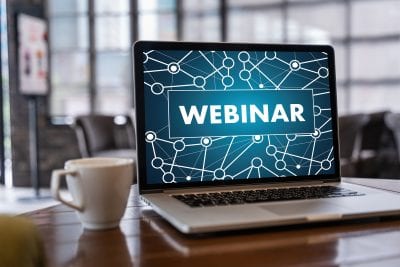Virtual Reality
VR Resources Available to You!
Description: Students at Southeastern Oklahoma State University have built 50 VR enabled modules. These modules range from Labs to Choir Practice and everything in between! The process for this project as well as links to all 50 modules are available in an OER Pressbook you can access for yourself!
Facilitators: Christala Smith and Alisha Ridenour (Southeastern Oklahoma State University)
2021 OKLIS: Influence of Monitor Screen Size on Immersion/Presence in a Virtual Learning Environment
Description: Virtual reality and virtual worlds (VWs) are powerful technologies currently helping to define the digital world. These technologies are characterized by user control, immersion, and sense of presence or “being there.” They have been examined from a variety of theoretical perspectives, technical and user variables, and psychological approaches. The purpose of this study was to extend VW research relating the roles of user age, gender, and technical characteristics such as screen size, directly to the VW-critical features of immersion and perceived presence. This study used a photo-real, on-screen, first-person VW in which users “enter” and “walk through” a VW via mouse navigation, viewing it through their own eyes rather than through an avatar. It used a quasi-experimental design with 35 adult subjects who were tested for perceived immersion and presence in a VW showing a 360-degree city panorama using different screen size treatments. Data were analyzed using mixed methods (e.g., interview comments and responses to questionnaires) to examine relationships among age, gender, immersion, presence, and screen size in the VW. Findings supported conclusions relating to the relevance of age and gender as user variables in VWs and the role of technology characteristics in VWs’ effective use. The study also opened a potential new line of inquiry by raising previously unaddressed questions about the importance of the psychological trait vs. state nature and measurement of immersion and presence in VWs. Implications and recommendations for instructional design and delivery and further research are offered.
Facilitators: Dr. Jon Martens (Analytics Journey, LLC), Dr. Robert Dionne (University of Oklahoma (ret.)), Dr. Ina Agnew (Oklahoma State University Institute of Technology), Dr. Chuck Baukal (John Zink Institute), Dr. Lynna Ausburn (Oklahoma State University), Dr. Floyd Ausburn (Oklahoma State University)
2021 OKLIS: Adaptive Teacher Development Strategies for Teaching STEM-related Information Systems with Analytics
Description: Women are often underrepresented in the Science, Technology, Engineering, and Math (STEM) professions. Without access to equitable opportunities to explore careers, acquire interdisciplinary contents, and develop the 21st century skills that can further impede women’s abilities to participate in the highly competitive global workforce; and succeed in fast-growing, STEM-related emerging careers (e.g. analytics, data science). This multi-tier STEM Career Builder grant (2018-2021), funded by the National Science Foundation (NSF), aims to discover what partnership models, strategies, and innovations can effectively support female high school teachers and students through the research, development (R&D) and implementation of five multi-tier interventions: (1) teacher professional development (PD), (2) a summer academy, (3) job shadowing, (4) mentoring, and (5) internships, and research fellowships.
Facilitators: Dr. Joselina Cheng, Alexia Benson (University of Central Oklahoma)
2021 OKLIS: Bringing Virtual Reality to Higher Education
Description: SEOSU partnered with OneNet to produce approximately 50 VR enabled modules for 12+ faculty in multiple departments at Southeastern. The first few are in the final stages of development. We will share our experience thus far and discuss how others might begin similar projects at their own institutions.
Facilitators: Christala Smith (Southeastern Oklahoma State University)
2021 OKLIS: Developing Experiential Learning Projects for Online Courses
Description: UCO’s IDEA team was task to develop four virtual experiential learning assignments to allow students to virtually experience projects that were previously only possible in person. The assignments focus on allowing students to virtually collaborate to build and restructure essays, receive tangible feedback on persuasive speeches, turn their paper presentation poster into a robust online presentation, and simulate first-hand experience of what it is like to lead a team to climb a dangerous mountain.
What kind of lessons did we learn? How were did we get our faculty involved? What kind Technologies were used and how did we use them? Did all of the students make it up the mountain? Come by and have all of your questions answered.
Facilitators: Robert Wall, Drew Stephenson (University of Central Oklahoma)
OK Nursing Remote Labs Workshop
Description: For nursing faculty and online learning professionals: a workshop to uncover issues related to teaching traditional skills and nursing simulations remotely. The workshop will brainstorm ideas and help participants start a plan to prepare for any future transition to remote instruction.
Facilitators: Brad Griffith (Oklahoma State Regents for Higher Education)
Online Lab Conundrum – Virtual Workshop
Description: Have you been grappling with whether labs can be delivered effectively in the online environment? This session will review what the Eberly College of Science at Penn State University is doing for online labs, proving that it’s not about the labs, it’s about the outcomes. This highly interactive and collaborative session will utilize problem-based learning to help participants uncover strategies to use in their own courses.
Facilitators: Melissa Hicks (Penn State University)
New Realities!
Description: Augmented, Mixed, and Virtual Reality are powerful and fundamentally different from existing communication mediums. Ken Parker will explain them and how can you potentially use them for education.
Facilitators: Ken Parker (Next Thought)

